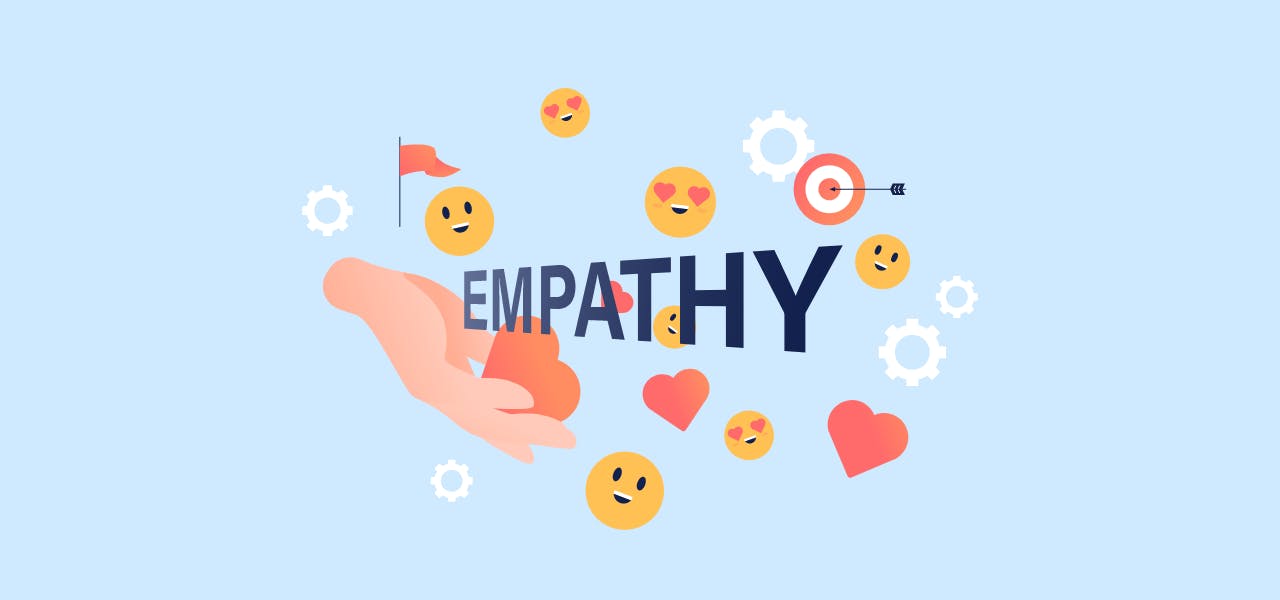Leaders are people that are able to take control of a situation and delegate tasks to get the job done. There are various soft skills that go along with this role, but for a truly successful leader to develop, they must have empathy.
Empathy is the ability to relate yourself to those around you. It’s vital in personal relationships. Yet, it's also essential in the work environment. If you work as part of a team or in a leadership position, empathy is a non-negotiable trait; otherwise, you end up with a dictatorial relationship with those around you, rather than a respectful one.
When those in supervisory and management positions of a department express empathy and compassion while still keeping boundaries in place, it ensures that others feel valued. In turn, the employees are motivated to do well and be productive. Because of this end result, empathetic leadership is an in-demand ability, and it’s particularly coveted by those in higher education hiring roles.
Connecting Empathy With Leadership
Having empathy means that you can understand the thoughts and behaviors of someone else. You’re sensitive to the reasons why they are doing what they’re doing because you have the emotional intelligence to connect with them. Empathy aids in clear communication, which then strengthens the bonds of work and personal relationships.
There are three main types of empathy: cognitive, somatic, and affective. Understanding the three helps you learn what it is you’re doing when you relate to others, and how to ensure you set boundaries.
● Cognitive empathy is when you can put yourself in someone’s shoes to see how a situation would influence their thoughts. This assists you in predicting another person’s behavior before they do anything. As an example, if you know that your colleague has a history of depression, and you have to give them somewhat bad news, you can expect that they may react more strongly than you would have, had you been given the same news.
● Somatic empathy is less common, but impactful. With somatic empathy, when someone else is experiencing strong emotions, you have a physical response that connects with them. For instance, if your colleague is berated by a department chair in front of you, you feel nauseous and upset. You understand that embarrassing someone in front of others isn’t the proper form of leadership, and you feel sorry for the colleague.
● Affective empathy includes taking your awareness of a person’s emotions and knowing how to respond to them the best way possible.
These forms of empathy are important. As a leader, you must connect with those around you. The trick is to do so with boundaries because some people will try to use that empathy to walk all over you.
Tips to Increase Your Empathy Without Decreasing Control
It is possible to be an empathetic leader with boundaries that allow you to stay in control. Here are a few tips to help you as you build your leadership skills:
● Listen to the other person’s problem, but don’t respond with a solution immediately. Ask them if they’re venting to you, or if they would like advice. If they request your opinion, and it’s not a life or death, emergency issue, let them know you will think about what they said and get back to them with a clearly thought-out reply. In the heat of the moment, it’s easy to make emotionally-charged decisions that aren’t the best solution. However, give the other person and yourself a time frame. Otherwise, that same important topic could get put on the back burner and never get addressed timely.
● Be cautious about letting your empathy for someone allow you to make poor decisions. The more you know about someone’s personal life, the slippier the slope becomes. You know that a faculty member has a family to support, yet, their academic behavior is not up to par. It’s your job as a leader to discipline them, writing them up as necessary when they haven’t done what they were supposed to do. Yet, you let them get away with things repetitively because you don’t want them to lose their position. This is an example of empathy connecting to poor decision-making. Stay rational. It could be that the other person needs a consequence in order to change their behavior.
● Also be cognizant of the level of your empathy to other people plays in your own mental health. Taking on the problems of everyone else and putting them on your own shoulders is a fast road to burnout. You can be a listening ear, but your wellness comes first. If you know you can’t take on more problems within your boundaries, let the other person know that you want to help them, but you must get rid of a few things on your plate already before you can give them the attention they deserve.
These tips will increase your leadership ability, letting you include empathy as your inherent traits while still keeping boundaries in place.
Add Your Leadership Skills to Your Impactio Profile
Confident in your leadership abilities? Head over to your Impactio account and add the impressive things you’ve done as a leader to your profile. Your Impactio membership connects you with thousands of other scholars all over the globe who may need your advice or mentorship, or someone looking for you to enhance their next research project.
Let Impactio connect you to a network of people where your leadership and talents can shine.
